
Find Help
More Items From Ergsy search
-

Can I get dental implants on the NHS?
Relevance: 100%
-
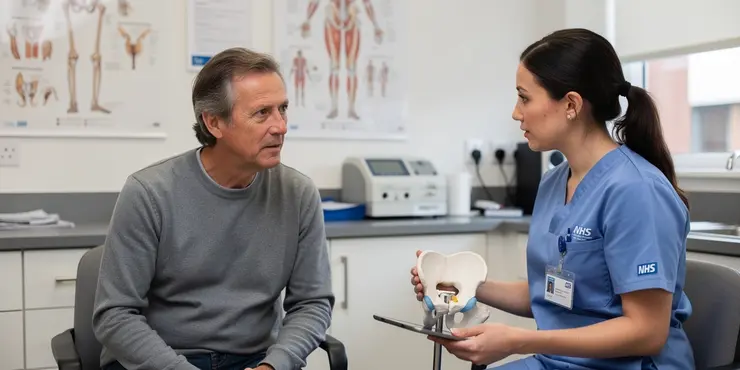
Are there different types of hip implants?
Relevance: 60%
-

Can I have a mammogram if I have breast implants?
Relevance: 55%
-
Is it safe to get dental work done in Turkey?
Relevance: 52%
-
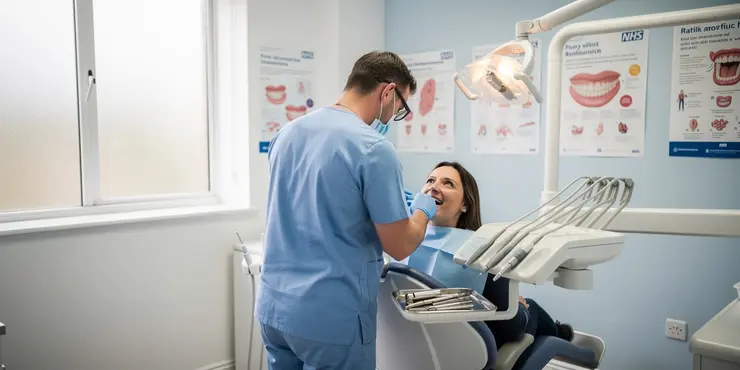
What treatments are covered by the NHS dental service?
Relevance: 49%
-
What treatments are covered by the NHS dental services?
Relevance: 49%
-
Can I get cosmetic dental treatment on the NHS?
Relevance: 49%
-
Can I get Turkey Teeth if I have existing dental issues?
Relevance: 46%
-

NHS Dental Charges Explained
Relevance: 45%
-
Are NHS dental charges different across the UK?
Relevance: 44%
-
Are there waiting lists for NHS dental treatment?
Relevance: 44%
-
What if I need urgent dental care?
Relevance: 44%
-
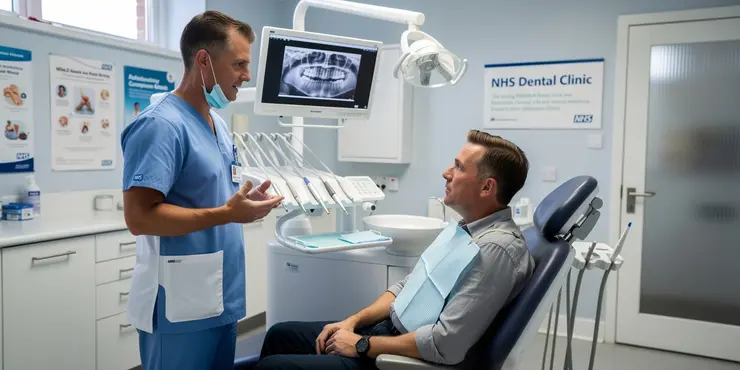
Are all dental appointments free on the NHS?
Relevance: 43%
-
What if I'm not satisfied with my NHS dental treatment?
Relevance: 43%
-
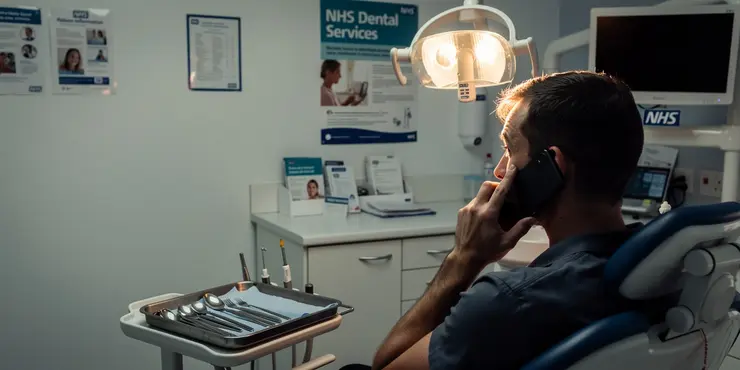
Can I get an emergency NHS dental appointment?
Relevance: 43%
-

Are there any extra charges for NHS dental treatments?
Relevance: 42%
-
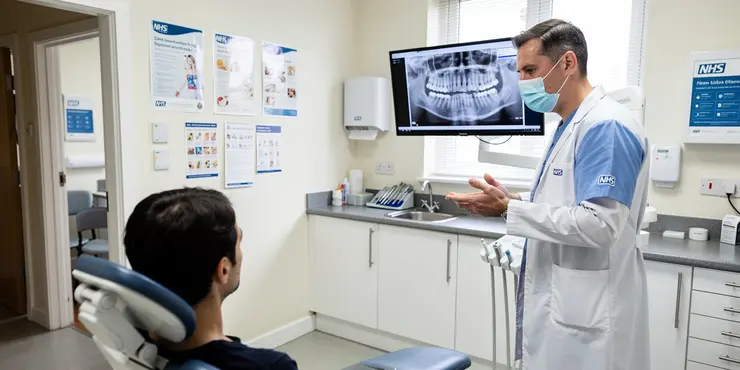
Will Brexit affect my access to NHS dental treatments?
Relevance: 42%
-

What happens if I miss my NHS dental appointment?
Relevance: 42%
-

What should I bring to my NHS dental appointment?
Relevance: 42%
-

Dental Health: Tips for All Ages
Relevance: 42%
-
How do I choose the right dental clinic in Turkey?
Relevance: 42%
-
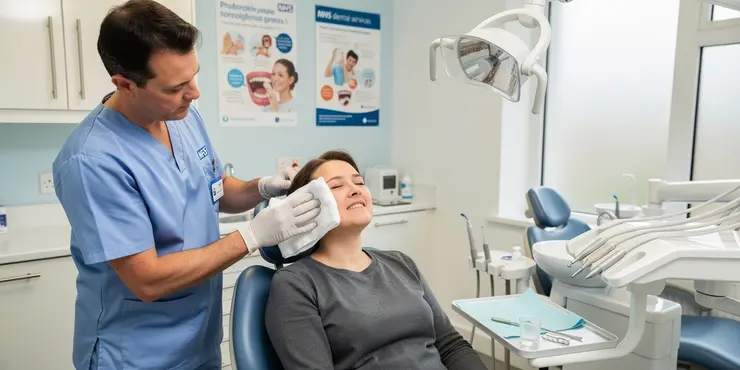
NHS 24 | Self-help tips for dental pain
Relevance: 42%
-
Can children get free NHS dental care?
Relevance: 41%
-

How often should I have a dental check-up on the NHS?
Relevance: 41%
-

NHS 24 | How to get help for dental pain
Relevance: 41%
-
Can I use private dental services if I'm on the NHS list?
Relevance: 41%
-

How long will I have to wait for an NHS dental appointment?
Relevance: 41%
-
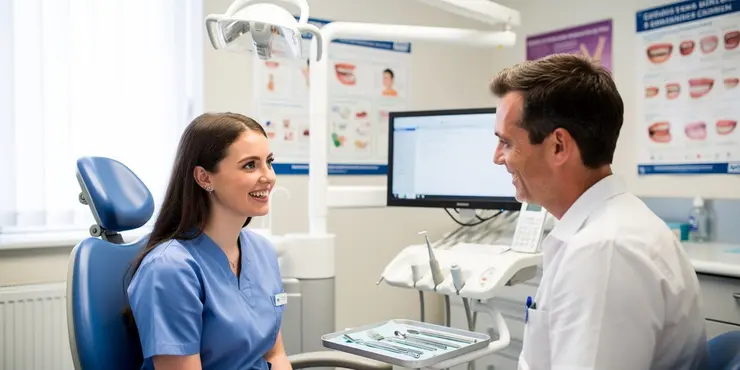
How do I know if I'm eligible for free NHS dental care?
Relevance: 41%
-

What is the role of dental sealants in preventing tooth decay?
Relevance: 41%
-

Is sedation available during NHS dental treatments?
Relevance: 40%
-
How much will I have to pay for NHS dental treatment?
Relevance: 40%
-
What languages do NHS dental clinics typically support?
Relevance: 40%
-
Do I need to be a registered patient to get emergency NHS dental care?
Relevance: 40%
-
How can I provide feedback about my NHS dental care?
Relevance: 39%
-

How long before hip replacement implants need replacing?
Relevance: 38%
-

What is it like having a Transcutaneous Aortic Valve Implant (TAVI)?
Relevance: 37%
-
Will my insurance cover Turkey Teeth?
Relevance: 35%
-
What should I consider before getting Turkey Teeth?
Relevance: 34%
-

Do NHS dentists cover cosmetic treatments?
Relevance: 29%
-
How often should I visit the dentist?
Relevance: 28%
Can I Get Dental Implants on the NHS?
Dental implants are a popular solution for replacing missing teeth, offering a durable and natural-looking alternative to dentures and bridges. However, in the UK, access to dental implants through the National Health Service (NHS) is limited to specific cases. This means that not everyone is eligible to receive dental implants under NHS funding.
Eligibility Criteria for Dental Implants on the NHS
To qualify for dental implants on the NHS, patients must meet strict clinical criteria. Generally, the NHS provides implants only when there is a significant medical need. This includes cases where a patient cannot wear standard dentures for health reasons or if dental implants are part of reconstructive treatment following oral cancer or major trauma. The primary goal is to restore functionality and improve the patient’s quality of life.
Referral and Assessment Process
If you believe you may qualify for dental implants on the NHS, the first step is to visit your NHS dentist for an initial assessment. The dentist will evaluate your oral health and discuss the potential benefits and limitations of dental implants. If they determine that you might be eligible based on NHS criteria, they will refer you to a dental specialist or oral surgeon for further evaluation. This specialist will conduct a comprehensive assessment to decide if dental implants are the best option for you.
Private Treatment Options
For those who do not qualify for NHS-funded dental implants, private treatment is an alternative. Private dental implants can be expensive, with costs varying significantly depending on the complexity of the procedure, the number of implants required, and the practitioner's expertise. Prices can range from £1,200 to £3,000 per implant. Patients considering this route should consult with multiple private dentists to compare treatments and prices, ensuring they receive quality care from a reputable practitioner.
Financing Dental Implants
Since dental implants can be a significant financial investment, many private dental practices offer financing options. These may include payment plans or loans through a medical finance company, allowing patients to spread the cost over time. Some practices might offer interest-free credit for a limited period or low-interest financing options, making the procedure more affordable for patients.
Conclusion
While NHS funding for dental implants is available, it is limited to specific medical necessity cases. Most patients seeking implants will need to explore private treatment options. It is important to have a thorough discussion with your dentist to understand whether you qualify and to explore all options available for securing the treatment you need.
Frequently Asked Questions
Can I get dental implants on the NHS?
Dental implants are generally not available on the NHS unless there is a medical need.
Under what circumstances can dental implants be provided by the NHS?
Dental implants may be available on the NHS if you cannot wear dentures or if facial reconstruction is needed after an accident or due to a medical condition.
Are dental implants covered by NHS for cosmetic reasons?
No, dental implants are not provided by the NHS for cosmetic reasons alone.
If I qualify, how much do dental implants cost on the NHS?
If you qualify for dental implants on the NHS, the treatment will fall under NHS fee structures, which may differ based on individual circumstances.
How do I find out if I'm eligible for NHS dental implants?
Consult your dentist; they can assess your situation and refer you for NHS treatment if you meet the criteria.
What are the alternatives to dental implants if I'm not eligible on the NHS?
Alternatives include dentures or bridges, which may be more likely to be covered by the NHS.
Is there a waiting list for NHS dental implants?
Yes, there is often a waiting list for dental procedures on the NHS, including implants.
Can anyone apply for NHS dental implants?
Anyone can apply, but eligibility is strictly assessed based on specific criteria related to health needs.
Do I need a referral for NHS dental implants?
Yes, typically a dentist referral is required to access NHS treatments, including dental implants.
Are NHS dental implant services available countrywide?
Availability can vary by region, and access depends on local NHS resources and referral processes.
What is the usual process for getting NHS dental implants?
First, consult your dentist, who may refer you to a hospital or specialist services if you qualify.
Can I get NHS dental implants for missing front teeth?
Missing front teeth may be considered if it severely impacts function or appearance and fits medical criteria.
How long can the process take for NHS dental implants?
The process can take several months, from consultations and assessments to referrals and the actual procedure.
Are dental implants funded by NHS for elderly patients?
Elderly patients may qualify if there are significant medical reasons and they meet NHS eligibility requirements.
What documentation do I need to apply for NHS dental implants?
Your dentist will handle the referral process, but you'll need medical histories or assessments that demonstrate the need.
Can NHS dental implants be part of reconstructive surgery?
Yes, they can be part of reconstructive surgery if there's a medical necessity due to trauma or congenital conditions.
Is there any age restriction for NHS-funded dental implants?
There's no strict age limit, but medical necessity and potential benefits are key factors.
How can I appeal if denied NHS dental implants?
You can discuss further with your dentist and possibly request a review or second opinion if you're initially denied.
What are the benefits of having dental implants on the NHS?
Benefits include improved function, speech, and potentially better oral health compared to options like dentures.
Can the NHS provide aftercare for dental implants?
Yes, if the implants are provided by the NHS, they also ensure appropriate aftercare as part of the treatment.
Useful Links
This website offers general information and is not a substitute for professional advice.
Always seek guidance from qualified professionals.
If you have any medical concerns or need urgent help, contact a healthcare professional or emergency services immediately.
Some of this content was generated with AI assistance. We’ve done our best to keep it accurate, helpful, and human-friendly.
- Ergsy carfully checks the information in the videos we provide here.
- Videos shown by Youtube after a video has completed, have NOT been reviewed by ERGSY.
- To view, click the arrow in centre of video.
- Most of the videos you find here will have subtitles and/or closed captions available.
- You may need to turn these on, and choose your preferred language.
- Go to the video you'd like to watch.
- If closed captions (CC) are available, settings will be visible on the bottom right of the video player.
- To turn on Captions, click settings .
- To turn off Captions, click settings again.
More Items From Ergsy search
-

Can I get dental implants on the NHS?
Relevance: 100%
-

Are there different types of hip implants?
Relevance: 60%
-

Can I have a mammogram if I have breast implants?
Relevance: 55%
-
Is it safe to get dental work done in Turkey?
Relevance: 52%
-

What treatments are covered by the NHS dental service?
Relevance: 49%
-
What treatments are covered by the NHS dental services?
Relevance: 49%
-
Can I get cosmetic dental treatment on the NHS?
Relevance: 49%
-
Can I get Turkey Teeth if I have existing dental issues?
Relevance: 46%
-

NHS Dental Charges Explained
Relevance: 45%
-
Are NHS dental charges different across the UK?
Relevance: 44%
-
Are there waiting lists for NHS dental treatment?
Relevance: 44%
-
What if I need urgent dental care?
Relevance: 44%
-

Are all dental appointments free on the NHS?
Relevance: 43%
-
What if I'm not satisfied with my NHS dental treatment?
Relevance: 43%
-

Can I get an emergency NHS dental appointment?
Relevance: 43%
-

Are there any extra charges for NHS dental treatments?
Relevance: 42%
-

Will Brexit affect my access to NHS dental treatments?
Relevance: 42%
-

What happens if I miss my NHS dental appointment?
Relevance: 42%
-

What should I bring to my NHS dental appointment?
Relevance: 42%
-

Dental Health: Tips for All Ages
Relevance: 42%
-
How do I choose the right dental clinic in Turkey?
Relevance: 42%
-

NHS 24 | Self-help tips for dental pain
Relevance: 42%
-
Can children get free NHS dental care?
Relevance: 41%
-

How often should I have a dental check-up on the NHS?
Relevance: 41%
-

NHS 24 | How to get help for dental pain
Relevance: 41%
-
Can I use private dental services if I'm on the NHS list?
Relevance: 41%
-

How long will I have to wait for an NHS dental appointment?
Relevance: 41%
-

How do I know if I'm eligible for free NHS dental care?
Relevance: 41%
-

What is the role of dental sealants in preventing tooth decay?
Relevance: 41%
-

Is sedation available during NHS dental treatments?
Relevance: 40%
-
How much will I have to pay for NHS dental treatment?
Relevance: 40%
-
What languages do NHS dental clinics typically support?
Relevance: 40%
-
Do I need to be a registered patient to get emergency NHS dental care?
Relevance: 40%
-
How can I provide feedback about my NHS dental care?
Relevance: 39%
-

How long before hip replacement implants need replacing?
Relevance: 38%
-

What is it like having a Transcutaneous Aortic Valve Implant (TAVI)?
Relevance: 37%
-
Will my insurance cover Turkey Teeth?
Relevance: 35%
-
What should I consider before getting Turkey Teeth?
Relevance: 34%
-

Do NHS dentists cover cosmetic treatments?
Relevance: 29%
-
How often should I visit the dentist?
Relevance: 28%


